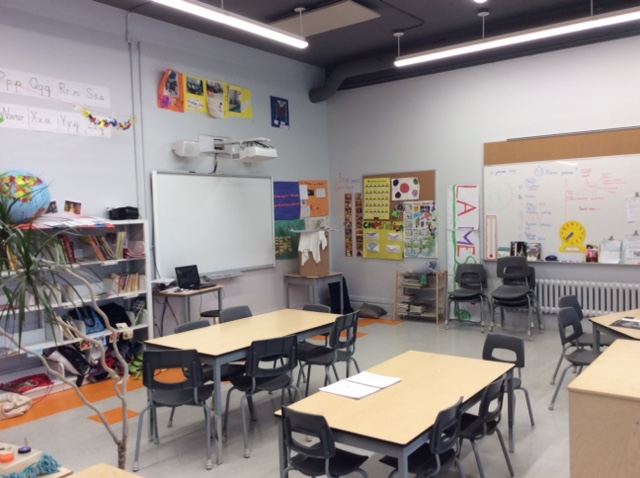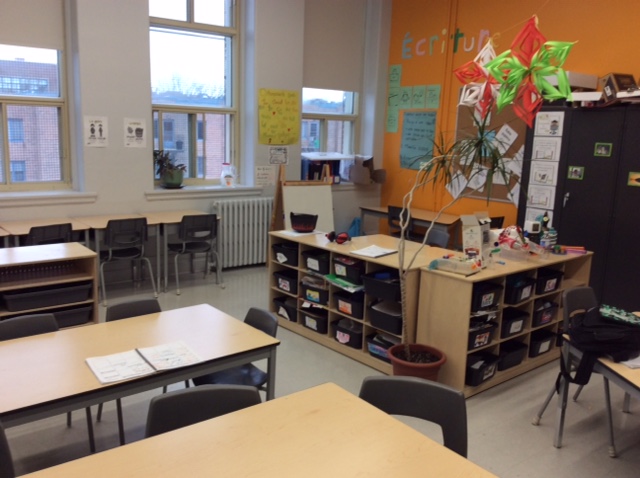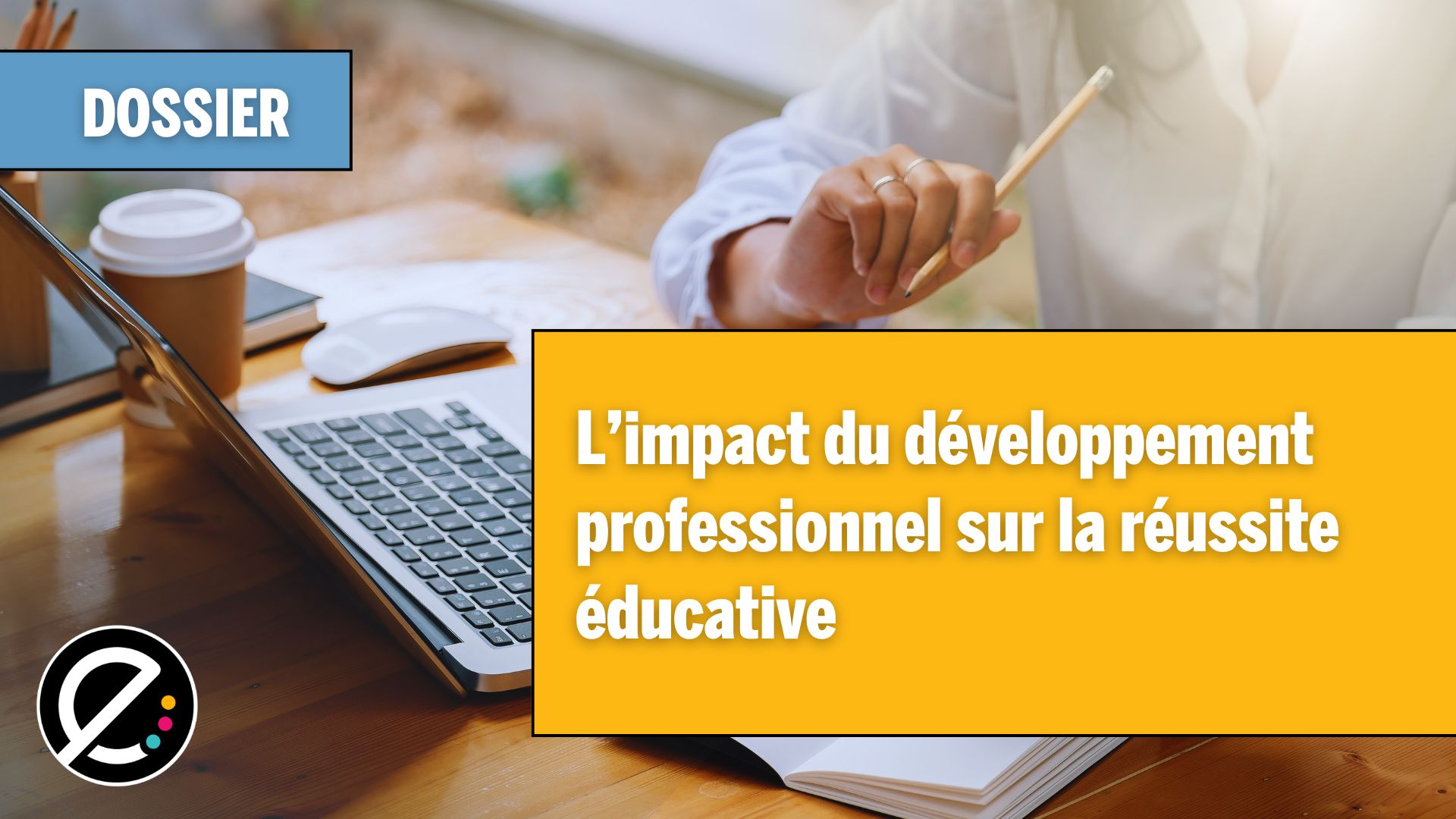Le Réseau des écoles démocratiques au Québec tenait son colloque les 20 et 21 janvier dernier. À cette occasion, nous avons pu visiter l’école alternative Le Vitrail.
Le Réseau des écoles démocratiques au Québec (REDAQ) tenait son colloque 2017 les 20 et 21 janvier. La première journée a permis de visiter différents centres d’apprentissage. La deuxième journée proposait des conférences à l’Université du Québec à Montréal (UQÀM).
Voici aujourd’hui un petit aperçu de notre visite à l’école alternative Le Vitrail. Demain, nous verrons différents types d’écoles membres de ce réseau particulier.
Qu’est-ce qu’une « école alternative »?
Les écoles alternatives se situent à mi-chemin entre l’école « traditionnelle » et les formes plus excentriques de scolarisation. Le site du Réseau des écoles publiques alternatives du Québec (RÉPAQ) fournit beaucoup d’information sur le sujet, dont voici une courte synthèse.
L’idée d’école alternative se fonde sur la pensée pédagogique humaniste préconisée par Socrate : le respect de la personnalité de l’enfant et un lien profond entre le maître et son élève. Ceci ne date pas d’hier, mais semble encore très actuel. Au Québec, c’est en 1955 et 1969 que furent créées les premières « écoles nouvelles ». D’ailleurs, la première école publique alternative, l’école-recherche Jonathan, ouvrait ses portes en 1974.
Trois caractéristiques particulières de ces écoles sont :
- les classes sont multi-âges;
- un système démocratique implique les parents en tant que coéducateurs et cogestionnaires;
- l’école respecte le rythme d’apprentissage des élèves plutôt que de l’imposer.
Il y a 35 écoles publiques alternatives au Québec, réparties dans 16 commissions scolaires et plusieurs régions.
Ces écoles sont la plupart du temps créées par une communauté de parents qui veulent offrir à leurs enfants un environnement éducatif fondé sur des valeurs humanistes. Le site du RÉPAQ offre même un Guide de création et du processus d’approbation d’une école alternative.
Une visite à l’École Le Vitrail, Commission scolaire de Montréal

L’école Le Vitrail, inaugurée en septembre 2015, est la seule école alternative du réseau qui couvre les secteurs primaire et secondaire. Une centaine d’élèves au primaire et autant au secondaire y étudient. C’est un concept multi-âge où des enfants de 5 à 18 ans développent leurs compétences et construisent leurs connaissances au contact des uns et des autres.
Sur place, en attendant le départ de la visite, j’ai parlé avec quelques adolescentes qui tricotaient dans la salle d’art. Ce projet d’école auquel tous les élèves – garçons et filles – participent, consiste à tricoter à temps perdu des carreaux de laine pour entourer, au printemps prochain, les quatre arbres devant l’école. Une façon originale de créer un sentiment d’appartenance à la communauté de son école!
Au primaire, les écoliers sont groupés en deux grands niveaux : l’un correspond aux classes de la première, deuxième et troisième année, l’autre pour les élèves de quatrième, cinquième et sixième année. Les élèves du primaire travaillent dans de vraies classes, très spacieuses et ouvertes.
Au secondaire, une douzaine d’élèves d’âges variés sont associés à un enseignant-tuteur qui les suit tout au long de leur parcours. Ce groupe se rencontre à tous les deux jours pour planifier les objectifs de travail. Cette approche crée des liens qui n’existent pas dans une école traditionnelle. De plus les élèves du secondaire sont encouragés à faire des périodes de bénévolat auprès des élèves du primaire, ce qui encourage la fraternité entre les élèves de l’école.
La coéducation : un principe fondamental
La coéducation est un principe fondamental de cette école. Les parents ne sont pas que des bénévoles qui collaborent à certaines tâches assignées par l’établissement. Ils se joignent à la communauté d’apprentissage et chacun contribue en fonction de ce qu’il peut et choisit… Par exemple, aider à la robotique ou gérer les ateliers de cuisine, mener les élèves visiter un site particulier, ou venir une demi-journée par semaine faire du tutorat en mathématiques. Bien sûr, intégrer ainsi les parents est exigeant pour les enseignants, car il faut souvent les « coacher » afin qu’il utilisent au mieux leurs compétences dans le cadre du projet éducatif de l’école.
L’administration, le gymnase et le local d’art, locaux où les élèves peuvent venir travailler lorsqu’ils sont libres, occupent le rez-de-chaussée. Le primaire occupe le premier étage et le secondaire, le second. Les locaux sont souvent spacieux et permettent à plusieurs élèves de travailler côte-à-côte, de faire équipe. Il y a aussi de plus petits locaux. Les élèves les occupent en petits groupes ou seuls quand ils désirent un espace plus calme. Ils peuvent aussi y rencontrer un enseignant ou leur tuteur.
On observe presque la parité homme/femme parmi les enseignants. Les enseignants du secondaire sont des spécialistes de leur discipline comme dans une école secondaire traditionnelle.
Un horaire atypique

Chaque matin à l’école Le Vitrail, tout le monde commence la journée par 35 minutes d’activité physique de son choix, à l’extérieur ou dans le gymnase.
L’apprentissage par projets interdisciplinaires réalisés en équipe, souvent dans des groupes multi âges, y est favorisé. Les disciplines prescrites par le programme de formation de l’école québécoise y sont intégrées.
Par exemple, des élèves travaillent à des projets collectifs comme la robotique. À ce titre, l’équipe des LOUPS (LeVitrail Ose Unir Persévérance et Savoir) participe depuis 2012 à la compétition de robotique FIRST.
Voyez aussi le projet LOVE, qui vise la promotion de la non-violence.
Certains ateliers thématiques sont aussi planifiés en cours d’année en fonction de besoins exprimés par les élèves et les enseignants.
Chaque élève a un horaire où sont inscrits les cours obligatoires de français, maths, sciences, langue seconde, éducation physique, etc., ce qui correspondent à environ 20 % du temps. Il y a une vingtaine d’élèves par classe lors de ces cours. Le reste du temps, les élèves aménagent librement leur horaire. Ils peuvent l’occuper par des périodes ouvertes d’apprentissage (p.o.a.), réaliser certains travaux, travailler à leur projet, rencontrer un enseignant pour une période de tutorat, etc.
L’école offre en plus un service de garde et une foule d’activités parascolaires et de sorties éducatives.
Une politique numérique AVAN
Quant à l’usage du numérique, l’école a une politique « Apportez votre appareil numérique » (AVAN), à la quelle la directrice, madame Geneviève Tremblay, trouve avantages et inconvénients.
La gouvernance coopérative de l’école facilite l’application de règles d’usage de ces appareils. Elles ont été élaborées démocratiquement par les élèves en collaboration avec l’équipe-école.
Une école pas pour tout le monde
Une heureuse étudiante du secondaire et son père partagent leur opinion à l’occasion de la visite de l’école. « Ce type d’école ne s’adresse pas à tout le monde, estiment-ils. Certains élèves gèrent difficilement un tel degré de liberté. Ils ont besoin de plus de structure. Ce genre d’école n’est pas fait non plus pour les parents directifs, ambitieux qui visent avant tout la réussite sociale et accordent moins d’importance à l’épanouissement et la réussite individuelle de leur enfant. »
* * *
Lors de ma visite, j’ai été particulièrement étonnée de l’ordre et du calme qui règnent dans cette école, alors que plus de 200 enfants de 5 à 18 ans circulent d’un local à l’autre selon le moment, assistent à certains cours ou travaillent avec un remarquable sérieux à leurs tâches respectives. Impressionnant!






